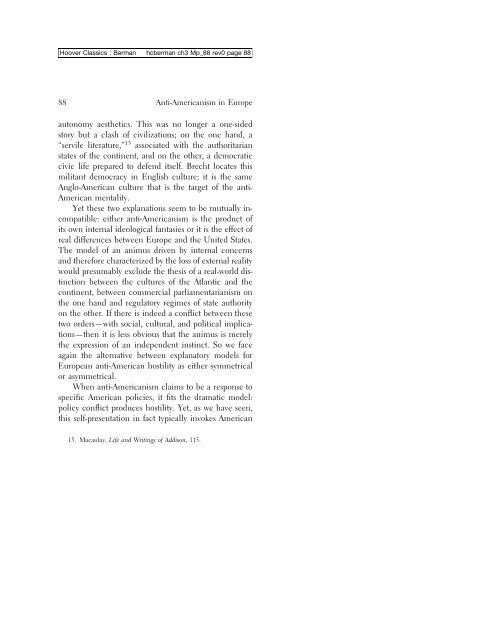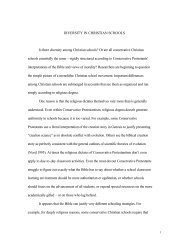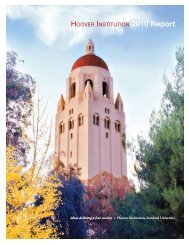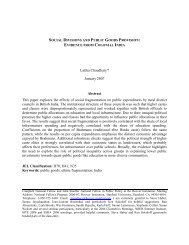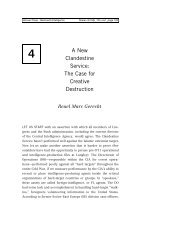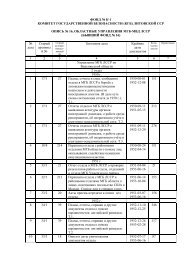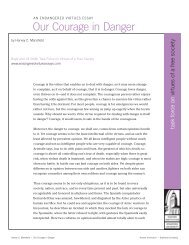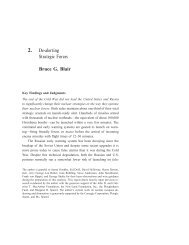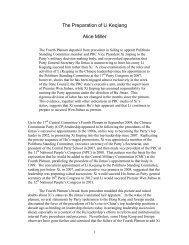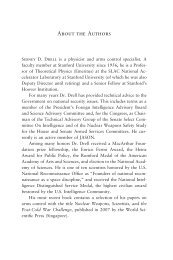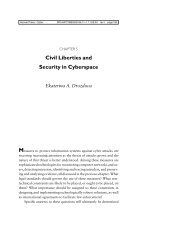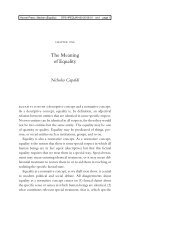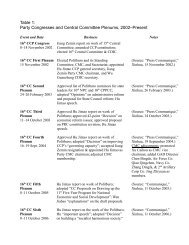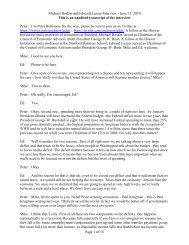On Really Existing Anti-Americanism - Hoover Institution
On Really Existing Anti-Americanism - Hoover Institution
On Really Existing Anti-Americanism - Hoover Institution
Create successful ePaper yourself
Turn your PDF publications into a flip-book with our unique Google optimized e-Paper software.
<strong>Hoover</strong> Classics : Berman hcberman ch3 Mp_88 rev0 page 88<br />
88 <strong>Anti</strong>-<strong>Americanism</strong> in Europe<br />
autonomy aesthetics. This was no longer a one-sided<br />
story but a clash of civilizations; on the one hand, a<br />
“servile literature,” 13 associated with the authoritarian<br />
states of the continent, and on the other, a democratic<br />
civic life prepared to defend itself. Brecht locates this<br />
militant democracy in English culture; it is the same<br />
Anglo-American culture that is the target of the anti-<br />
American mentality.<br />
Yet these two explanations seem to be mutually incompatible:<br />
either anti-<strong>Americanism</strong> is the product of<br />
its own internal ideological fantasies or it is the effect of<br />
real differences between Europe and the United States.<br />
The model of an animus driven by internal concerns<br />
and therefore characterized by the loss of external reality<br />
would presumably exclude the thesis of a real-world distinction<br />
between the cultures of the Atlantic and the<br />
continent, between commercial parliamentarianism on<br />
the one hand and regulatory regimes of state authority<br />
on the other. If there is indeed a conflict between these<br />
two orders—with social, cultural, and political implications—then<br />
it is less obvious that the animus is merely<br />
the expression of an independent instinct. So we face<br />
again the alternative between explanatory models for<br />
European anti-American hostility as either symmetrical<br />
or asymmetrical.<br />
When anti-<strong>Americanism</strong> claims to be a response to<br />
specific American policies, it fits the dramatic model:<br />
policy conflict produces hostility. Yet, as we have seen,<br />
this self-presentation in fact typically invokes American<br />
13. Macaulay, Life and Writings of Addison, 115.


